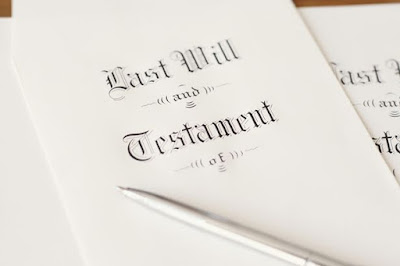Why You should Write a Will.

Why make a will? Your will tells everyone what should happen to your money, any property you own and all your possessions after your death. Altogether the things you own are called your estate. If you die without a will, which is called dying intestate , then the state decides how your property is passed on, according to laws set out. You and your family get no say in the matter. Under current laws, an unmarried partner may not inherit anything from a partner after death unless he or she is named in their will, no matter how long they have been together. Leaving a will simplifies the after death process, known as probate, for your family or friends. Leaving them to sort it out without a will can be time consuming and more stressful A will may also reduce the amount of any inheritance tax payable on the estate, if any (inheritance tax only applies to estates above £325,000 for a single person and £650,000 after both members of a married couple have died. A surviv